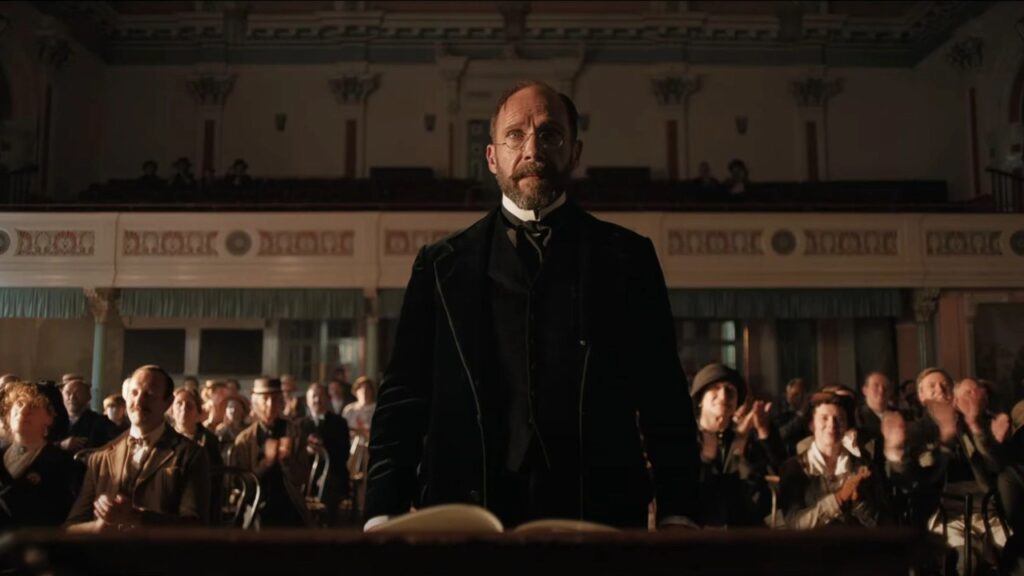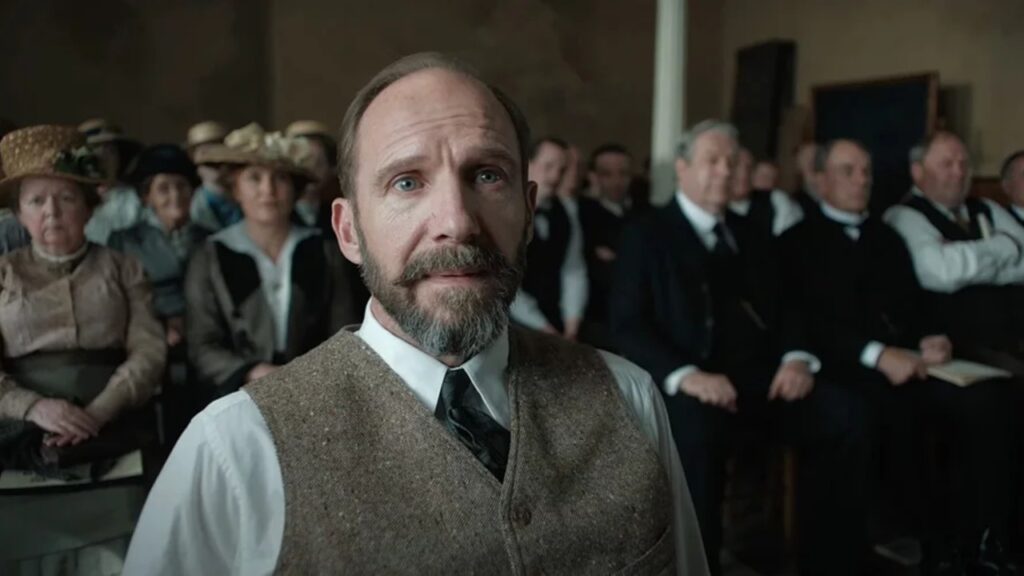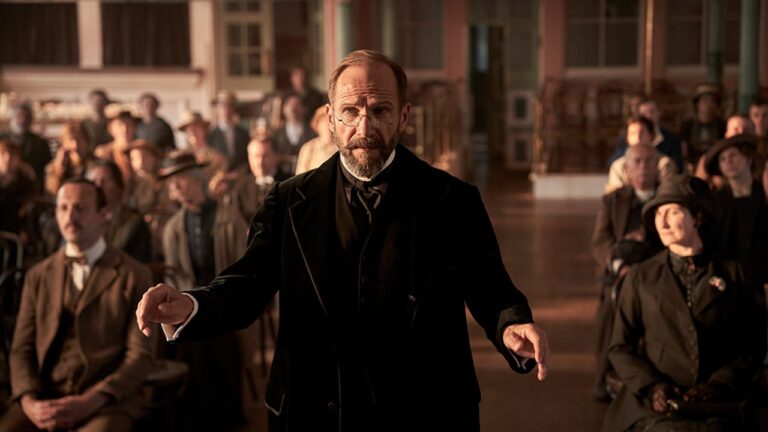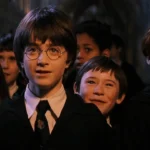The Choral, an Alan Bennett film directed by Nicholas Hytner and released by Sony Pictures Classics, is like a return to the type of storytelling that prefers people over spectacle. Ralph Fiennes, Amara Okereke, Jacob Dudman, Oliver Briscombe, and Robert Emms are only a few of its stars, who bring together a cast that balances subtle emotions with natural acting. “What makes this story so remarkable is that it explores the experience of war, not in the trenches but through music, and the way that music can enable us to retain our humanity when everything else is in flux.” The Choral takes place in the Yorkshire countryside during World War I.
Unspoken Truths and Silent Grief as Dr. Guthrie’s Struggle Between Art and Duty

This movie also represents Alan Bennett’s first original script work in more than forty years, so it definitely stands out as a return to form for the experienced writer. Bennett, recognized for his work on The Madness of King George and The History Boys, has once again collaborated with Nicholas Hytner, his longtime writing partner from both stage and screen productions. In this way, the duo has produced a movie that feels both personal and universal. Their experience in theater work also lends The Choral an almost theatrical quality, one in which much is often conveyed in subtle movement and quiet conversation rather than lofty rhetoric.
Based in 1916 in a fictional Yorkshire mill town named Ramsden, the film revolves around Dr. Henry Guthrie, who is portrayed by Ralph Fiennes and is the choirmaster. The musical passion of Dr. Guthrie finds itself at odds with the surging tide of patriotism in World War I. Guthrie holds the belief that art is more important than blind loyalty to the monarch, and his annoyance when his choir practices “God Save the King” with greater conviction than Elgar’s The Dream of Gerontius reveals a lot about him. He is well-educated, strict, and obviously not meant to be in the same company as the rustic residents. However, we understand that his quest for beauty is his own form of defiance.
The Dream of Gerontius and the Search for Meaning in The Choral

Fiennes brings a sense of restraint and bitter sweetness to Guthrie that is very human. We feel his loneliness and pain, particularly because he has a personal identity that is suggested but not explicitly dealt with. His relationship with the pianist Horner, played by Robert Emms, is full of implicit tenderness that hovers on the fringes of a society that would never permit them to be truthful about what they are. Guthrie’s character goes against the village’s concept of what a respectable man should be, but his musical dedication eventually brings them together. The boys in the choir, mostly boys on the cusp of experiencing the atrocities of war, provide another element to the narrative. Lofty, the postboy who delivers these terrible telegrams, and Ellis, his spunky sidekick, embody that fine line between youth and responsibility. Their banter and naive longings ring painfully true, particularly given the understanding that they might not live long enough to grow into men. Mary, played by Amara Okereke, is particularly significant as a representation of purity and control, while Bella and Clyde illustrate the devastation war exerts on love and the physical body. Where The Choral is so powerful is in its transit from humor to longing and then to sorrow. We see a community that is trying to hold itself together while sending its sons off to die.




